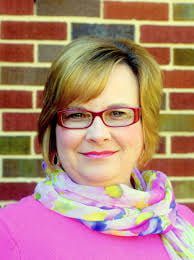
If you just skimmed the headlines over the last week, you’d think that the Charter School Annual Report for 2019, recently approved by the NC Charter Schools Advisory Board, heralded the definitive end of our public charter schools that have thrived in our state for more than two decades. Or worse, you may have gotten the impression that there’s a strategic initiative to hide the failure of achieving diversity in our charter schools.
Neither of those misperceptions is supported by the facts. Not surprisingly, the broad and inaccurate generalizations about public charter schools in our state are not new.
First, let’s be clear: North Carolina law already requires all public schools — charter or traditional public — to accept students regardless of their race, creed, national origin, religion or ancestry.
In fact, North Carolina’s public charter schools can’t turn away families and students who want to enroll in them, whereas our traditional public school counterparts are limited to only accepting students within their designated ZIP codes and school boundaries. If we are being fair, we would not be having this discussion about closing many traditional public schools in certain areas of our state that do not reflect the diversity of the communities they serve.
No public school — traditional or charter — should get a pass on serving all of our state’s students. Where there are deficiencies, we should work together to address them instead of throwing up our hands and giving up on our children.
The 2019 report does highlight a deficit that public charter schools could do a better job at addressing: making their presence and purpose known. Even among informed parents and communities, there are still misperceptions and unknowns about what public charter schools are and how they are an integral and innovative part of our state’s public education system.
As public charter school leaders and advocates, we must go into the communities that we seek to serve to explain that charter schools are funded by those communities’ tax dollars, are transparent and accountable on both the state and federal levels and, most importantly, can provide educational opportunities that traditional public schools in a given zip code may not offer. We can’t blame families for not taking advantage of options that may help their children succeed if we don’t make sure they know we exist to serve them.
There are also other potential solutions that our state’s charter schools can explore, such as weighted lotteries to increase diverse admissions which have seen success in some of our schools. We should also encourage our state’s policymakers to make better use of existing state and federal funding to grow and support programs like Advancing Charter Collaboration and Excellence for Student Success, or NC ACCESS, which provides grants to public charter schools to reach traditionally disadvantaged and underserved students and communities.
The bottom line is that all schools in North Carolina should be held to the highest standards because our children deserve that. As the State Board of Education meets to review this report, their deliberations and decisions must be based on the facts, the data and the true picture of our state’s public school system. This will then equip our state’s policymakers to support what is working, reform what is not, and make sure that our students have the access, support and options that help them succeed.
Rhonda Dillingham is the executive director of the North Carolina Association for Public Charter Schools.


